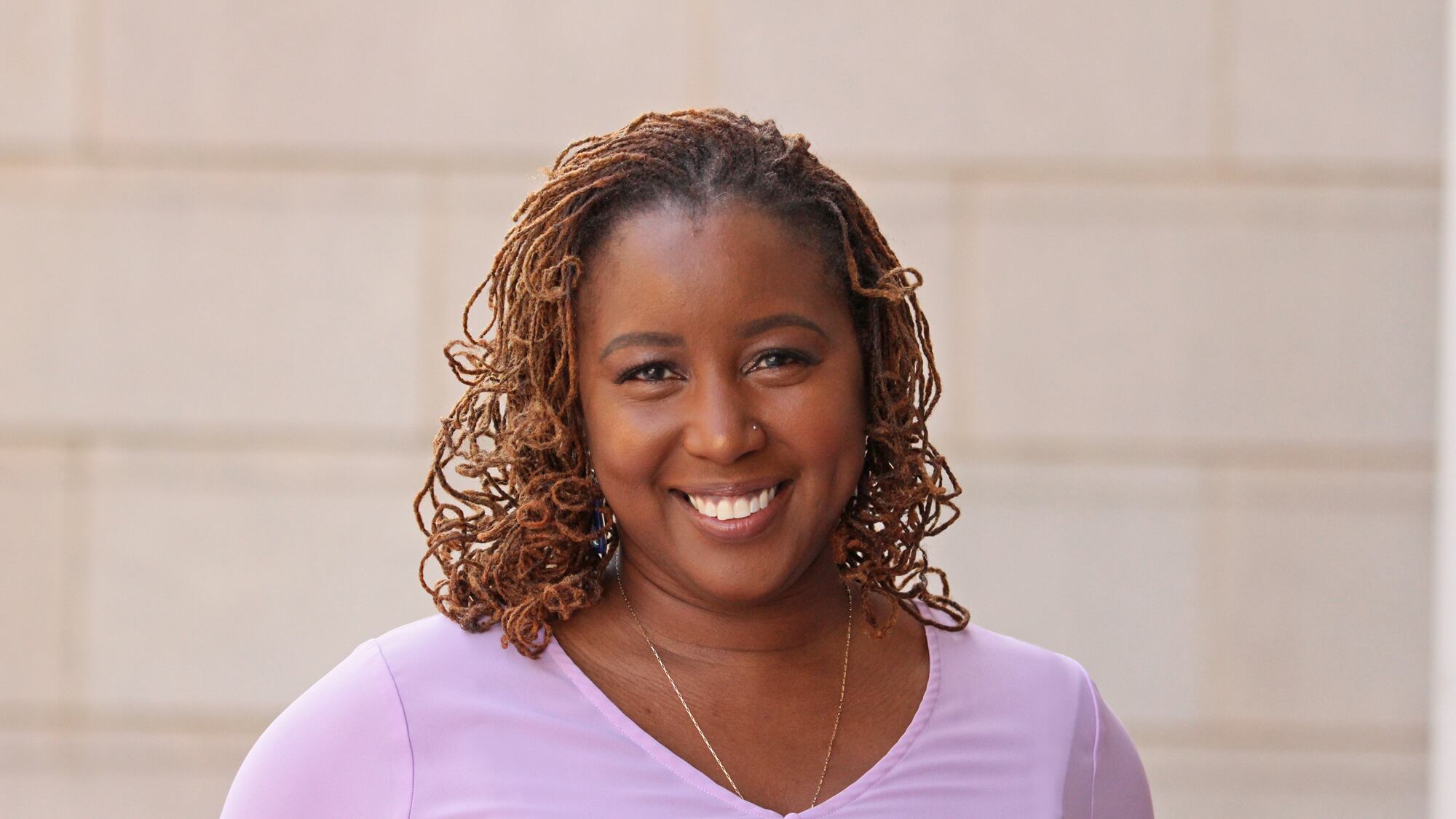Nataki Garrett is only four weeks into her new job, and she's already being celebrated as a symbol of nationwide change.
Recently, a generation of baby boomer directors in theaters across the country have stepped down, retired or been ousted from their positions. They've been replaced by a record number of women and people of color, who are eager to update theater for 21st century audiences. That includes Garrett. This August, Garrett became artistic director of Oregon Shakespeare Festival, one of the largest repertory theaters in the country. She's the first African American woman to lead the organization. In March, The New York Times published a story about the shift in demographics in American theater that begins: "To understand the striking transformation taking place in the American theater, consider Nataki Garrett."
But Garrett says that while she does feel like a crucial threshold has been crossed, American theater has hardly seen a revolution.
"What you're looking at is an addition of maybe 25 more nonwhite male voices. It's not necessarily a movement or a sea change. It's progress," she says by telephone from her office in Ashland. "We're on the precipice of change, we're in the process of transition, but I wouldn't say that the transition has been made, and I wouldn't say we're as far as we could be."
Besides, at least for the immediate future, Garrett's plan for OSF mostly involves stabilizing a company that's attempting to recover from substantial losses. Last year, the organization's deficit reached $2 million, and it laid off 16 employees. Plus, the company is still without a permanent executive director. Last fall, after Garrett's predecessor, Bill Rauch, announced he was leaving for a position in New York, executive director Cynthia Rider announced she would step down as soon as an interim director could take her place, saying "it's time for fresh leadership."
"Four weeks in," says Garrett, "what I'm really doing primarily is having conversations, having meetings, talking to my experts, talking to my constituencies, locating wisdom and areas where we're bleeding resources."
Still, even if it weren't for the national context, new leadership for the Oregon Shakespeare Festival is worth paying attention to. In its 84 years of existence, OSF has had only six artistic directors. Under Rauch, the festival began to move away from Eurocentric programming, eventually becoming as known for its new work commissions as its Shakespeare productions, and developed into a model for audience outreach.
"The thing that has really supported the growth of OSF over the years, but also the growth of the American theater, is a healthy balance of a little bit of history and a little bit of new work in your theatrical diet," says Garrett. "All of that work has to be able to speak in concert with each other about where we are now, who we are as a society and the kind of society that we want to be."
It's a formula that seems to have worked in Garrett's previous jobs. Before OSF, she was an associate director for the Denver Center for the Performing Arts. During a tumultuous transition period, she also stepped up as acting artistic director and managed to end the year with $1 million in income for the theater. She also has a track record of directing world premieres by young playwrights who have gone on to become some of the buzziest names in contemporary theater—four years after Garrett helmed its inaugural production, Braden Jacob-Jenkins' mind-boggling, Obie Award-winning An Octoroon drums up hype everywhere it's staged.
"This is not foreign to me to come into OSF when there's questions about whether or not we're going to be sustainable over time," says Garrett. "This feels right up my alley. It's not comfortable to be in deficit, but it's not foreign and it's not as scary as people think it is."
For now, Garrett's reforms mostly involve updating the theater's marketing and operational plans, and focusing on bringing in new constituencies. Like most arts organizations across the country, OSF is trying to figure out how to establish an audience base with millennials and Gen Z, which will inform future programming, too.
"I am looking for plays that create intersection, that flatten out the hierarchy," says Garrett. "'This is a play for an old audience, this is a play for a young audience'—no, this is a play for an audience that's interested in reflecting or witnessing our humanity, and I'm looking for those plays more often."
Garrett has some more ambitious ideas on how to broaden Oregon Shakespeare's audience, too—digitizing the festival to make it more accessible to theater fans with mobility concerns, building more alliances with other West Coast theaters, bulking up education and maybe even establishing a new works festival that includes both plays and films.
It might be a while before she can actualize her more radical ideas. But Garrett seems to be planning for the long run.
"What we're doing is shifting the status quo," she says about the new wave of American theater directors. "Slowly and arduously, but it's shifting."

Where to See Local Jazz Every Night of the Week
The Five Book Events We're Most Excited to See This Fall
The Five Theater Shows We're Most Excited to See This Fall
The Five Visual Arts Shows We're Most Excited to See This Fall
